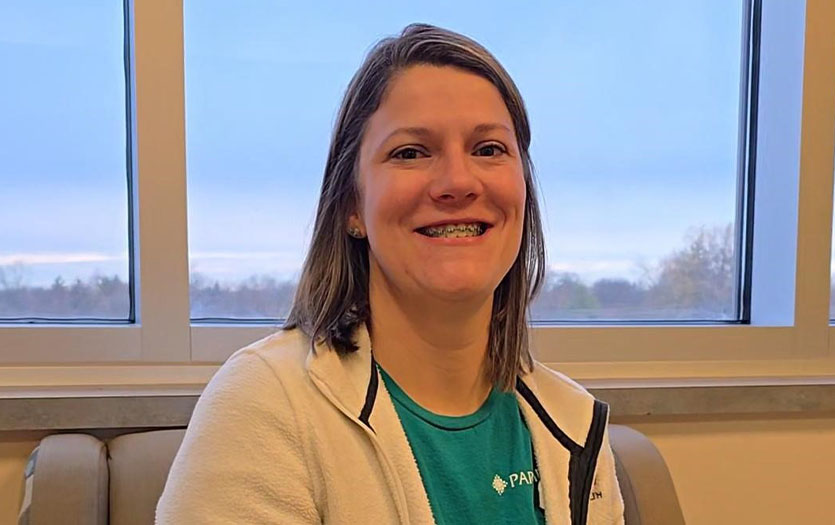When the time is right, turn off your push notifications and close out your inbox. Abandon your tendencies toward fragmented attention for a few moments and let this text pour in. As part of our ongoing effort to provide tools to help you combat the draining demands of the everyday, we asked Dave Johnson, PhD, RN, LMFT, employee assistance specialist, to divulge his secrets to addressing stress and shifting your thoughts to the present. Here are his observations and official endorsement for the mindful pause.
Change, at the speed of stress.
As a nurse and marriage and family therapist, I have spent my career looking in the eyes of those who have experienced great loss and unimaginable pain (physical, emotional and spiritual), and I have been privy to their insights about stress and coping. When it comes to self-care, most of us know that we need to eat healthy, exercise regularly, get plenty of sleep and connect with others (friends, family, God) to maintain a sense of balance and re-energize our life purpose. But how often do we think about slowing down to put our best self forward rather than speeding up to fit everything in?
The velocity of life change (there has been more global change in the past 10 years then in the previous 50) and the pressure to adapt activates the fight or flight response of the immune, gastrointestinal, neuromuscular and cardiovascular systems, often elevating inflammatory responses and increasing our vulnerability to symptoms and disease. The fact is, the physical, emotional and spiritual response of overwhelming stress must be addressed.
What’s wrong with the rush?
The negative side of a hurried lifestyle is the loss of time to pause and think about your intentions. If you slow down to smell the coffee, you give yourself the gift of time – time to think about choices and interactions with others, rather than flying by impulsivity and knee-jerk reactions. Have you ever sent an email or response to someone, pushed send and immediately regretted your message? By choosing not to rush, I am present for individuals that matter to me (my patients, family, friends, God). The flashy, frenzied, rushed lifestyle does nothing but trigger your fight, flight or freeze autonomic nervous system response. This creates a physiological cascade of effects, with the release of adrenalin-like substances throughout the body, ultimately undermining your health, work performance and relationships.
Taking the wheel.
One common and dangerous byproduct of our noisy minds is the tendency to go on “autopilot”. When habits become second nature and we neglect to pause and engage in the present, we lose the ability to halt and redirect a negative behavior. For example, if I eat on autopilot, I might turn to food when I am angry, tired, bored, lonely, fearful, etc. to ease my feelings. Or, I might go for a second plate of food because I didn’t take time to taste the first plate. If hunger is not the issue, food is not the solution. Being mindful gives me awareness as to what I need. Perhaps I need to run, exercise, call a friend, pray, meditate or journal, rather than defaulting to autopilot and eating.
Creating calm.
One simple mechanism for combating stress is mindfulness and the power of pause. Just breathing and applying sensory awareness techniques can manufacture calm. Cardiopulmonary patients, for example, find benefit in inhaling through the nose and exhaling through pursed lips. Not only is this beneficial to their condition, it also reconnects their breath with their spirit, which is helpful for everyone, even those not suffering from a cardiopulmonary issue.
As a personal practice, I pause and reflect in the moment … the now. I re-center myself, sometimes through prayer, but in some instances by using intentional sensory awareness to be present to the moment. When I tell my patients to, “come to their senses,” I literally mean for them to intentionally come out of their overthinking (and often stressed) minds by using their senses (what do you hear, see, smell, touch, taste). Practicing this type of pause with mindfulness aids my overthinking, multitasking brain and allows it to truly be present to listen to those I am called to serve.
Find a moment to insert a thoughtful pause into your day and simply observe your body and your surroundings. It’s a strong first step toward mindfulness and a great ally in your fight against stress.
Mindfulness-based stress reduction practice has been extensively researched and proven helpful for coping with changes, grief, healthy eating patterns, pain, anxiety, depression, and many other chronic disease and autoimmune disorders. For more on stress management programs and techniques, contact the Parkview Center for Healthy Living at (260) 672-6500.



